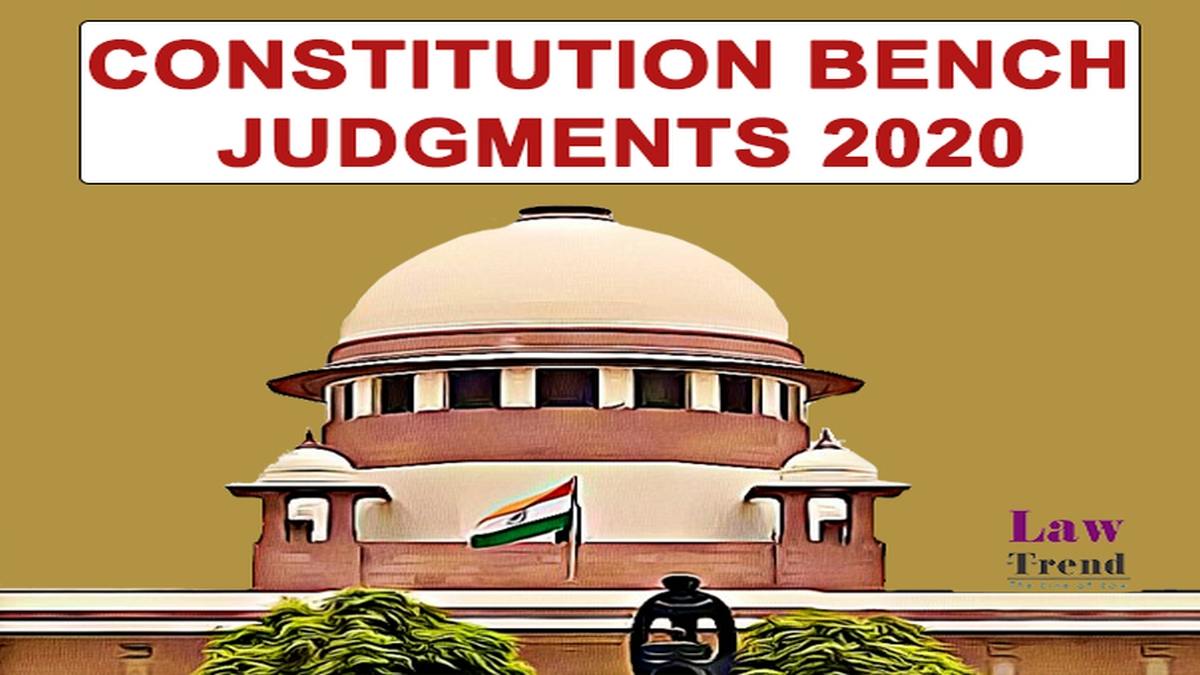In the Year 2020, we got 11 Constitution Bench Judgments by the Supreme Court of India, and the most interesting part is that all these Judgments are unanimous. Out of the 11 Judgments, 9 Judgements have been delivered by benches consisting of: Hon’ble Justice Arun Mishra, Hon’ble Justice M.R. Shah, Hon’ble Justice Indira Banerjee, Hon’ble
To Read More Please Subscribe to VIP Membership for Unlimited Access to All the Articles, Download Available Copies of Judgments/Order, Acess to Central/State Bare Acts, Advertisement Free Content, Access to More than 4000 Legal Drafts( Readymade Editable Formats of Suits, Petitions, Writs, Legal Notices, Divorce Petitions, 138 Notices, Bail Applications etc.) in Hindi and English.







